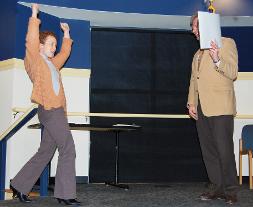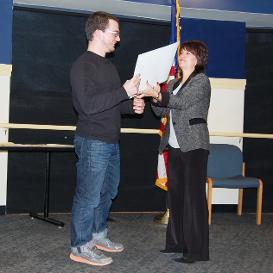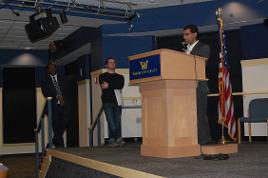
The
sun was easing off the heat in a Southern Indian sky, and a breeze swirled
through the small, coastal fishing village. Our boats docked for the evening,
and the group of photographers jumped onto land, lenses dusted, ready for
dusk’s light and culture. We were 10 days into a 3-week excursion to India.
Simply stated, I was oversaturated with my first third world exposure. The
moment our plane landed in Mumbai, the sounds, colors and smells of India
created warmth in my soul and a stretching of the mind’s eye. People bathed in
streets, men solidified deals with handshakes and women nursed babies on the
stoops of 3-storied shacks next to fenced in, mini-mansions. Extreme was the
only collective adjective to describe those initial city days, and I was glad
to be in the quiet of the rural South.
I
kicked up dirt, slowly, trying to process how the world
could be so big, and diverse. How many people in India seem at peace with so
few luxuries and people in America at such discord, with so many?
On
the pathway to village houses, there was an old woman sitting on porch steps,
dog at feet. She had thick, coke-bottled glasses all dirtied up. I waved. She
waved back, and flashed a big smile. Continuing on, I found the group snapping
photos of an elderly lady in a lilac shirt, cataracts in both eyes to match.
She was crying. In a very touching moment, a sweet man in our group extended
his hand to reach hers, money encased. Time paused. The energy between the two
was of compassion and empathy. Others began to give her money, and I felt
conflict of wanting to give but not having much to hand out. I spent every
penny in my bank account to get to India, and was on a very tight budget to
survive the next 2 weeks. When the woman began prompting her grandson to tell
the crowd how sick she was, I turned and left.
Numbness
filled my spirit and I quickened the pace to escape. The woman with the jovial
smile was still sitting on her steps, dog at feet, now with rosary beads
hanging in her weathered hands.
“Can
I sit with you?” I yelled, just in case speaking a foreign language also meant
she couldn’t hear me. She laughed and nodded, though it was unclear if she
understood my self-invitation. Inching my way up towards her, the dog sat up
snarling and she kicked it back down before patting the spot next to her. I
slid in so close she could have been my own grandmother and she laughed, again.
“Are
you Catholic?” I asked, loudly. She nodded.
“Are
you Catholic, like Father, Son, Holy Spirit?” I asked again, signing the cross
in the ritualistic manner of Catholicism. She was still nodding, but with a
goofy smile, as if she had not understood my questions.
“Our
Father, who art in heaven, hallowed be thy name…” in my big ol’ overwhelmed
state I began to pray. I was craving spiritual guidance to help comprehend
India, my misery with work at home, how I would ever make enough money to give
to someone in more need than my late 20’s self and then, like a school girl in
the last pew, my new friend began to crack up and laugh, at me!
With
a glance into her dirty, thick glasses, an eruption of belly laughter pulled us
together. We smacked our thighs, shared deep breaths interrupted by hilarious
and ridiculous giggling. She kissed my cheek and patted my wild hair. I held
her hand so tightly it may have bruised had it not been toughened with years of
3rd world strength. After a few minutes of aching joy, and ten days
of comfort zone expansion, tears released. This woman lovingly wiped my
dirt-streaked face before slapping me on the back, almost as hard as she kicked
the dog.
On
the stroll back to our house boat, two valuable life lessons seemed clearer
than the evening sky:
First,
while giving the shirt off one’s back is considered noble, without a backup
shirt it is a foolish, prideful offer. One must have materials to give
materials.
Second,
and more importantly, the human spirit is filled with devotion and warmth. It
is the richest and most valuable asset we can offer another human being,
regardless of age, world status, language spoken. Love is universal and
laughter is free.
|
|

Much like the breathtaking plains of
Africa, my life has been filled with diversity. In the past year my life has
transformed as a result of places I’ve seen, the people I’ve met, and the
things I’ve done. I lived a rather sheltered life before starting my education
at Wilkes; coming from a family of modest background, I never had the chance to
see the world, though I often dreamed of traveling. As made possible by the
mentoring grant committee, I had the opportunity to travel to Uganda, Africa,
where I spent weeks among the locals, learning their language, eating their
food, and playing their games. Immersed in their culture, Dr. James Merryman
and I directly advised a local clean-water organization as to better water
sanitation practices: a job I took great pride in, and one that changed my
world view forever.
It was strange to me to return to my
small town of Duryea, Pennsylvania, after my long journey across the globe. I
had always lived in the same town, in the same house, and now it was as if I
was seeing everything and everyone with new eyes. I learned in my travels that
in the African language of Swahili, the word “friend” and the word “stranger”
are one in the same. It is this mindset of acceptance that redefined my world
at home.
A few minutes away from where I stayed
was The Children’s AIDS Clinic of Masindi. It was the place where my revelation
began and was filled with people I will never forget. I spent hours at the
Children’s AIDS Clinic, talking to the patients, as well as their doctors and
families. Although these children had AIDS, they radiated happiness and hope.
It was a tangible kind of hope, one that I hold onto today in times of
distress. These kids, even at 5 and 6 years old, became role models for me;
teaching me bravery and strength. After spending the day with these
kids-hearing their stories, and feeling their energy-I began asking myself, is
there something more I can do with my life that could change theirs?
The next week, I visited the small
village of Nyakarongo, where the people lived modest lives growing sugar cane.
I set up in a small mud-hut with a thatched-roof for what I thought was just
another day of surveying the villagers. After my work was finished, I began
packing up when I was approached by an old man. His name was Mboiro, he was
wearing a ragged old suit, and was walking with a cane in order to support his
frail body. He looked me in the eyes and simply said “help me.” He put out his
hands, exposing a large cut on his palm, clearly infected-a risk that at his
age could be fatal. He then pointed to his eyes, clouded and gray from
cataracts; he was blind.
I sat him down and got out my first
aid kit, while the villagers quickly gathered in curiosity. I began to bandage
his hand and give him eye drops, so his blind eyes could at least be comforted.
He folded his hands and thanked me, again and again. When I turned around to
leave, I found myself surrounded by 15 villagers, all on their knees waiting
for eye drops.
I’ve spent a great deal of time in
hospitals in America, and never have I seen someone as grateful as Mboiro, nor
have I ever seen children as inspirational as those at the AIDS clinic. It was
in the village of Nyakarongo that I decided I would devote myself to a life of
tropical medicine, hopefully practicing alongside Doctors Without Borders, in a
poverty stricken country such as Uganda. Had I not had this study abroad
experience, I would have never found that life-changing village. With so much
disease and so little help, my trip was cut short due to an outbreak of Ebola
in a neighboring district.
Despite the abrupt end to what was a
life-changing experience, it was not before I saw everything I needed to see to
make that decision. I know I am on the right path now-helping these people is
my calling, and this trip made that inevitably clear to me. As I think back on
my experience, and possibly future experiences, I want nothing more than to go
back to Nyakarongo, and to make sure that Mboiro is still walking around,
waving a healthy hand to all lucky enough to cross his path.
|
|

As a young man
raised in the Middle East, I couldn’t be less affected by the circumstances and
international conflicts happening around the borders of my country. My life was
simple and I believed I was much the same as all the other young people around me.
My world was a very small place, yet it witnessed the results of intolerance
and extremism. For a long time, I thought that that is the case everywhere in
the world, and that different people need different worlds to live. Before
arriving here, I had prepared myself mentally to be faced with all the types of
discrimination based on my personal views and beliefs. In the first
visit to the USA, I expected going through many problems because of how I look,
or because of where I come from. I was sometimes hesitant to joining social
gathering with other people fearing it might become a confrontation or lead to
sectarian arguments. It wasn’t very long when all my fears withered away. Then,
I realized that the most integral aspect that I had perceived as central to
human interaction, namely religion, was no more than a superficial man-made
label that has been used for something other than its essential purpose; it has
been used to segregate people and a tool of suppression. Now, after two years
in the USA, I have started viewing the world through different binoculars. I
have realized that being a good citizen and a good person is more important,
and it surely is, than being a devout worshipper or a hard believer.
John F Kennedy
once said "Tolerance implies no lack of commitment to one's own beliefs.
Rather it condemns the oppression or persecution of others." I believe these words summarize the nature of
peaceful coexistence in America. Here, the traditional labels have been
voluntarily put aside to focus on more uniting values; on the top of which is
national identity. I grew up in a community with some degree of misconceptions
and even prejudice against democracy and religion.
However,
coming to the USA allowed me to see that a Jewish temple might be just across
the street from a church, and a Muslim family might live on that same street.
All exist in harmony under their American identity. I believe what unites them
all is the value they place on democracy and accepting the other within a
larger nation. This reminds me of some great words of a truly great man, Martin
Luther King, Jr. when he said "We may have all come on different ships,
but we're in the same boat now."
Now with the
democratic movements back at home in the Middle East, and with my renewed faith
in peaceful humanity and coexistence as I’ve seen in North East Pennsylvania, I
feel the future holds many promises for us back there. I dream of a better
Middle East where people from all origins, faiths and races can coexist to
achieve unity and equity among their peoples. My experience in America has
transformed me from viewing the world from a single narrow view onto viewing
the world and people as a unity that aspires to live and be productive members
of a larger society.
|